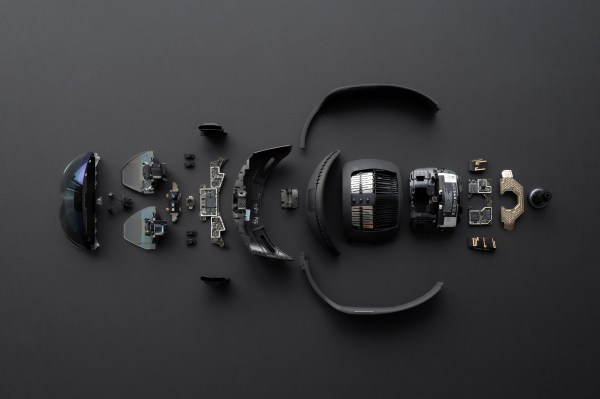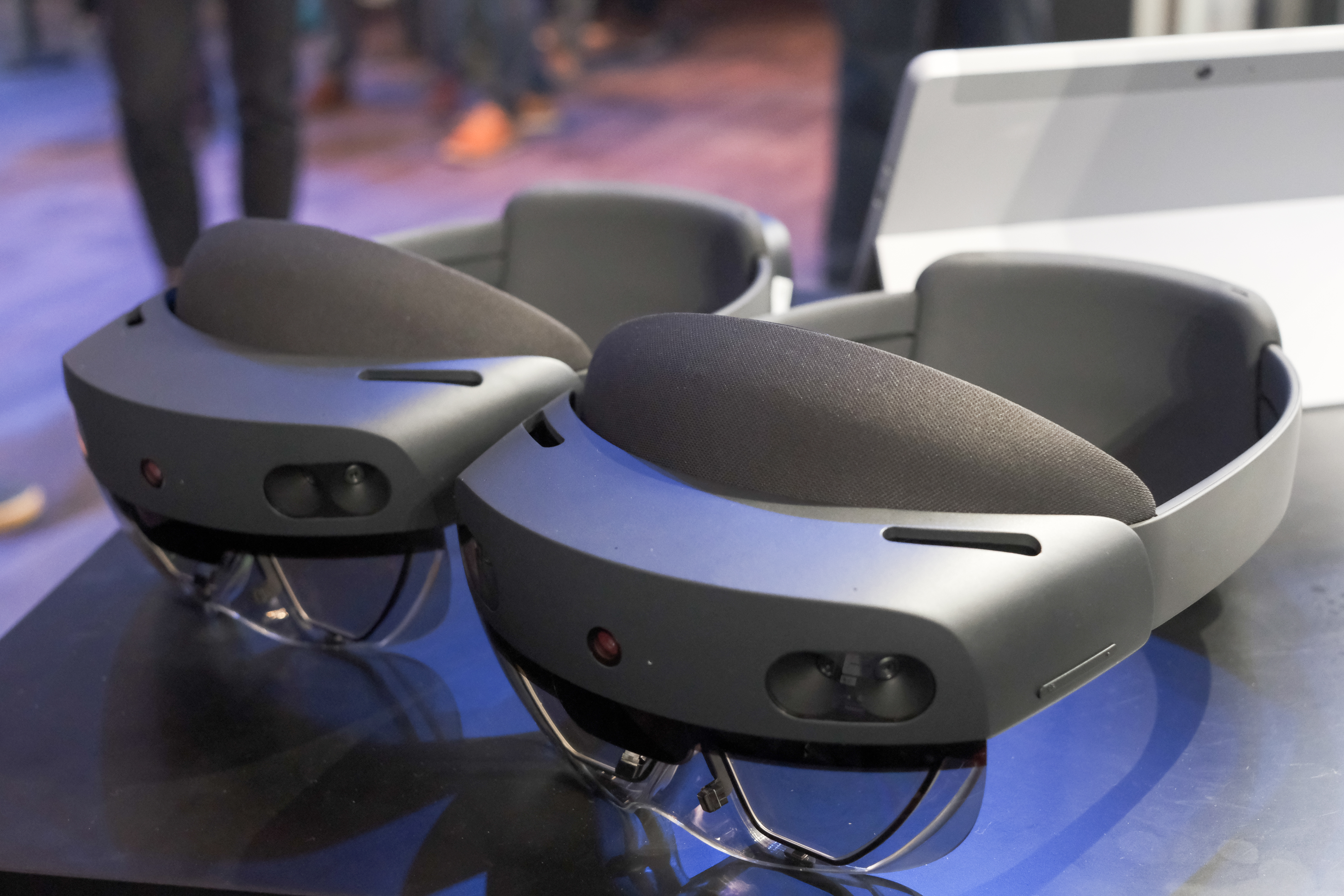Earlier this year, at Mobile World Congress in Barcelona, Microsoft announced the second generation of its HoloLens augmented reality visor. Today, the $3,500 HoloLens 2 is going on sale in the United States, Japan, China, Germany, Canada, United Kingdom, Ireland, France, Australia and New Zealand, the same countries where it was previously available for pre-order.
Ahead of the launch, I got to spend some time with the latest model, after a brief demo in Barcelona earlier this year. Users will immediately notice the larger field of view, which still doesn’t cover your full field of view, but offers a far better experience compared to the first version (where you often felt like you were looking at the virtual objects through a stamp-sized window).
The team also greatly enhanced the overall feel of wearing the device. It’s not light, at 1.3 pounds, but with the front visor that flips up and the new mounting system that is far more comfortable.
In regular use, existing users will also immediately notice the new gestures for opening up the Start menu (this is Windows 10, after all). Instead of a ‘bloom’ gesture, which often resulted in false positives, you now simply tap on the palm of your hand, where a Microsoft logo now appears when you look at it.
Eye tracking, too, has been greatly improved and works well, even over large distances, and the new machine learning model also does a far better job at tracking all of your fingers. All of this is powered by a lot of custom hardware, including Microsoft’s second-generation ‘holographic processing unit.’
Microsoft has also enhanced some of the cloud tools it built for HoloLens, including Azure Spatial Anchors that allow for persistent holograms in a given space that anybody else who is using a holographic app can then see in the same spot.
Taken together, all of the changes result in a more comfortable and smarter device, with reduced latencies when you look at the various objects around you and interact with them.

